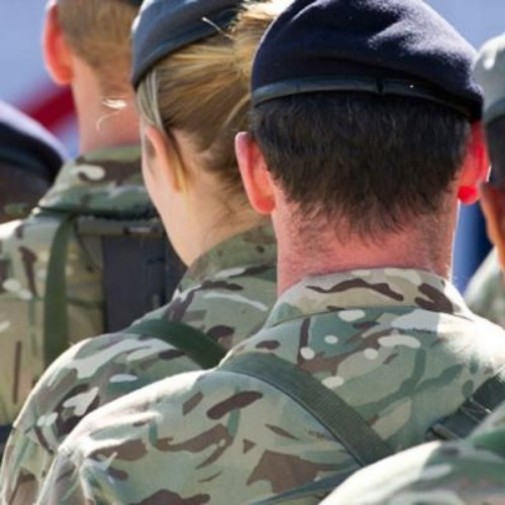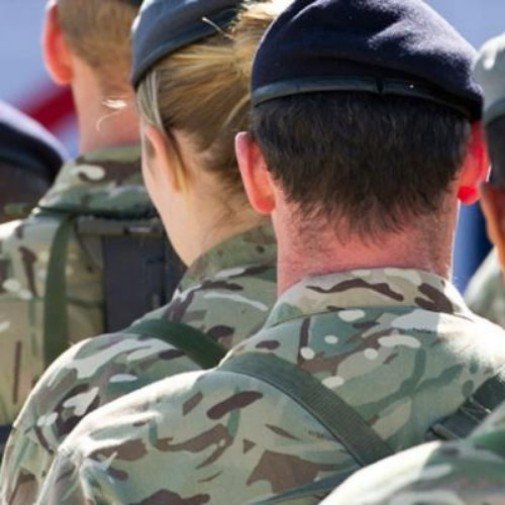Doctor Gerry Dolan, a former JNCO in the RAF, writes for Pathfinder International magazine on the battles many may face on the other side of the fence in civilian life, following military service and the importance of reaching out for help…

No matter your role, rank, or background, leaving the military is often a difficult and stressful experience for most of us. You might have built up to this moment for many years or perhaps just a few months, maybe you were medically discharged or perhaps you hit the big PVR in a moment of blind panic. Regardless of your individual path to discharge, once you are officially out, a whole raft of feelings that you may not have expected can come up. Maybe it’s excitement of new roles or going back home for good, perhaps it’s the relief of not seeing JPA again, or it could be fear or even sadness at losing a life/identity/relationships you had for so long. All of us struggle, but we all do it for different reasons and in different ways.
When I left the military myself I felt completely fine, and actually believed I had transitioned to civvy street with no difficulties. It was only much later that I started to realise something was up. I started to realise, or was told, I was different to everyone else around me. I walked, spoke, joked and saw things differently. Little things that went unnoticed to others annoyed me also, not being on time (5 minutes early), people complaining over what I thought were tiny things, a lack of “banter” at work and everyone else seemingly out for themselves. I felt different and I stood out, for better or for worse. Even now I still don’t feel a proper “Civvy”, if there is such a thing. However, truthfully I don’t feel military either.
This experience of feeling caught between being military and civilian is a very common one. It has been suggested that all of us leaving the military have to go through something similar (Ahern et al., 2015). Like it or not, for most of us the military is not just a job, but a way of life also. How we make sense of ourselves once we can no longer serve is suggested to be one of the key factors that impacts how successful or difficult your discharge is overall (Ashcroft, 2014). During and after discharge many of us will need to draw on the support of those around us, be that friends, family, or support services like charities and groups. However, very few of us actually reach out to specialist mental health supports. In fact, it has been suggested that less than 20% of ex-servicepeople who need/deserve the support actually engage with it (Iverson et al., 2010). Many of us are actually dying because we do not get the support we deserve. We suffer in silence, maybe because we think we should cope or that we need to be strong and support others just like the military trained us.
A big thing which makes us servicepeople so special is also what can make us more vulnerable to big moments like discharge. This is because a lot of servicepeople come from really difficult family backgrounds prior to joining (Blosnich et al., 2014). Going through difficult experiences while we are young can make us much more resilient than other people; and this maybe explains why some of us choose to join one of the most physically and mentally demanding jobs on the planet…and that’s just the basic training! We confront challenges head on and always for the benefit of those around us, be that colleagues and friends. However, every strength also has a weakness, and for those of us from difficult backgrounds we may struggle to think about ourselves as an individual outside of the military, and what our purpose is when we leave. What are we when we are not serving others, when we no longer wear the uniform or have the structure and support of the military?
Each and every one of us will have to face these questions in some way. Since leaving I was lucky enough to spend time interviewing ex-servicepeople from difficult backgrounds as a part of a joint research project with Trinity College Dublin and CombatStress. What stood out for me was how painful most ex-servicepeople found discharge, even when it was expected. For many of them leaving the military brought up painful feelings of being forced out and even abandoned, like everything that made them feel important and valued was being stripped away “one of the most traumatic incidents for me was some stinking, sorry, civvy, oxygen thief medic telling me that you’re not allowed to wear your uniform anymore and give me your ID card”. Another ex-servicemen explained how being outside of the military led to him initially not feeling he held any value anymore “It was a shattered mirror experience you know, one day looking in the mirror as a smartly dressed fighting machine, you know who’s everything you know, who has, you know, has the structure, like knows what, what’s going to happen tomorrow. Where are you going, what you’re going to do”.
One of the first things that the ex-servicepeople seemed to notice after leaving was the difference in mindset between them and civilians “my mindset is, get it done right now, now. Let’s find it, let’s do it. Nobody thinks along those lines, unless you’ve got an ex-squaddie working for you. But then you get civilians and no, bam, bam, bam let’s not do it, let’s have a coffee break”. Any of us that have served can relate to the reflection of wanting to get things done straight away, but we probably wont recognise how unique this way of doing things is until we leave the military. Many of the people I spoke to also said they felt a real need to be a success, not really for themselves but to make their military colleagues/friends proud in some way “I feel like I have let them down because I have not been such a massive success like I hoped I would have been maybe”. It seems clear from speaking with other ex-servicepeople that some of us carry a burden to put others first even after discharge, and that this can put more pressure on us than we can always cope with.
Regardless of the difficulties in discharge, the majority of the ex-servicepeople I spoke with ended up being successful in their own ways, be that with jobs, relationships or in learning to find value in their military service. It is important to say that most of us will be absolutely fine in discharge, but if we struggle we need to find a way of breaking through the stigma of getting the support we deserve. Some of the ex-servicepeople I spoke to found real benefit in connecting in with the military in whatever way they could. For some it was about ensuring they kept in contact with their ex-colleagues on social media, and for others it was about reaching out to services/charities/clubs where they knew other ex-military would be. For others it was about speaking to a professional about their struggles, and learning ways to move forward in a new way. Regardless of whether it is a professional or other ex-servicepeople, finding a space to talk to someone about your service and any struggles can really support your chance of success post-discharge. While we are all on our own journeys after leaving, you are never truly alone on the outside. All you need to do is reach out.

